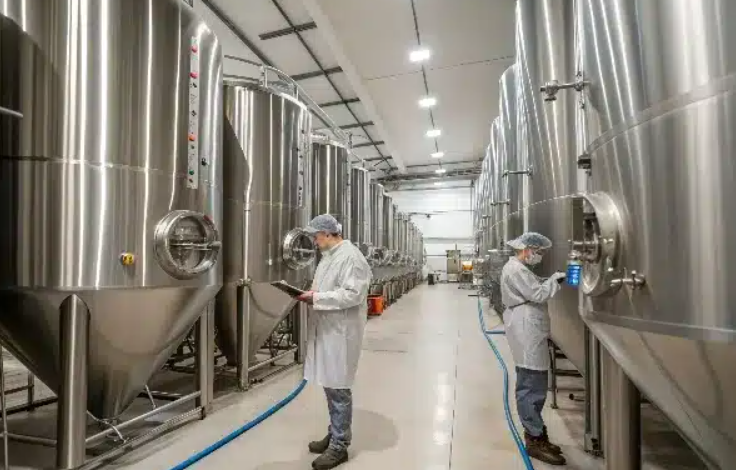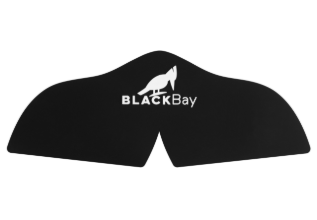Choosing Fermentation Equipment: A Practical Guide to Fermentation Supplies, Kits, and Benefits

Fermentation is an ancient technique that continues to thrive in modern kitchens and labs. From making kombucha tea to brewing beer in the garage, fermentation has found its place in both traditional and cutting-edge food and beverage production. Whether you’re just starting out or looking to upgrade, it’s crucial to choose equipment that fits your current market and financial situation. Whether you’re fermenting food or beer, you need the right fermentation equipment.
If you’re curious about choosing the right fermentation equipment, along with the tools, kits, and containers to go with it, follow this article.
What is fermentation? Why is the fermentation process so important?
Fermentation is a biochemical process in which microorganisms such as yeast or bacteria convert sugars into alcohol, acid, or gas. This process not only preserves food and produces alcohol, but also enhances flavor, improves nutritional value, and improves digestibility. This is why beer is often called industrial bread.
The benefits of fermentation include:
- Fermented foods often contain probiotics, which promote gut health
- Improve nutrient absorption
- Reduce the presence of harmful substances
From yogurt to kimchi to beer, fermentation not only extends the shelf life of foods but also enriches their flavor profiles.
See also: Simple Grounding Techniques for Instant Stress Relief
The Basics of Fermentation Equipment Selection: Fermentation Supplies
When you first learn about fermentation equipment, you’ll notice a wide variety of options available—some specifically for food fermentation, others for beer fermentation. Regardless of the type of fermentation supplies, you can choose the one that best reflects the product you ultimately want to ferment and the market demand.
Let’s take beer and kombucha fermentation as examples. The fermentation process requires the following equipment:
- A container (glass or food-grade plastic)
- A fermentation lid or airlock
- A weight to ensure the ingredients are completely submerged
- A thermometer or hydrometer to monitor the environment
These are essential tools for everything from kombucha fermentation to traditional beer brewing.
How do you choose the right fermentation vessel?
There are many fermentation vessels available on the market, but not all are suitable.
- Glass fermenters are popular because they are non-reactive, easy to sterilize, and allow for intuitive observation. Ideal for kimchi, pickled vegetables, and small-batch kombucha.
✘ Not suitable for beer fermentation. - Stainless steel fermentation vessels are best for beer fermentation or commercial use. They’re:
- Durable
- Heat-resistant
- Suitable for pressure management
- Durable
Especially for beer fermentation, stainless steel fermenters ensure safety and precision.
How can beginners choose the best fermentation kit?
If you are just getting started, consider a fermentation kit. These often include:
- Pre-configured tools
- Instructions to avoid beginner mistakes
Some of the best fermentation kits are used for kimchi, yogurt, kefir, or kombucha.
If you’re looking for something easier, the best fermentation kit for beginners focuses on:
- Ease of use
- Easy cleaning
- Step-by-step instructions
Interested in alcohol? Try alcohol fermentation kits — great for small batches of beer, wine, or cider, typically including:
- Yeast
- Nutrient packs
- A fermentation vessel
Expanding the Fermentation Market: Automated Fermentation Equipment
For advanced users or commercial applications, automated fermentation equipment can be a game-changer. These systems feature:
- Real-time monitoring of temperature, pressure, pH
- Precision and scalability
- Ideal for microbreweries or R&D labs
Perfect for those expanding into commercial fermentation.
How can homebrewers purchase specialized fermentation equipment?
Searching online for “fermentation supplies near me” or “fermentation stores near me” can lead to:
- Local specialty shops
- Brewing supply stores
- Complete homebrewing kits
These sources provide everything from glass jars to complete fermentation kits.
The Role of Fermenters in Home Brewing
Home brewing requires precision, and a key component is the beer fermenter, which converts wort into beer.
For beginners:
- A small stainless steel tank or plastic fermenter is often sufficient
For advanced brewers:
- Conical fermenters with:
- Bottom drain valves
- Sampling ports
- Pressure relief devices
- Bottom drain valves
These features ensure more control and consistent brewing quality.
Kombucha and Fermentation: A Delicious Encounter
Kombucha is a beginner-friendly fermented beverage made from:
- Tea leaves
- Sugar
- A SCOBY (Symbiotic Culture of Bacteria and Yeast)
Kombucha fermentation is easy to start and provides:
- Organic acids
- Digestive support
- Detox potential
It’s an excellent gateway into the fermentation world, helping you learn:
- Sanitation
- Temperature control
- Fermentation timing
Fermentation is a Choice
Fermentation isn’t just a hobby—it’s a lifestyle rooted in science, tradition, and health. Whether you’re trying your first kombucha fermentation or building a full beer fermentation system, your equipment matters.
Thanks to modern technology, sourcing fermentation supplies has never been easier. Whether from local fermentation stores or global equipment suppliers, you can now:
- Find the perfect fermentation vessel
- Build your own home fermenter
- Create delicious, long-lasting, probiotic-rich foods and drinks
With the right containers, tools, and patience, fermentation can transform simple ingredients into culinary excellence.




